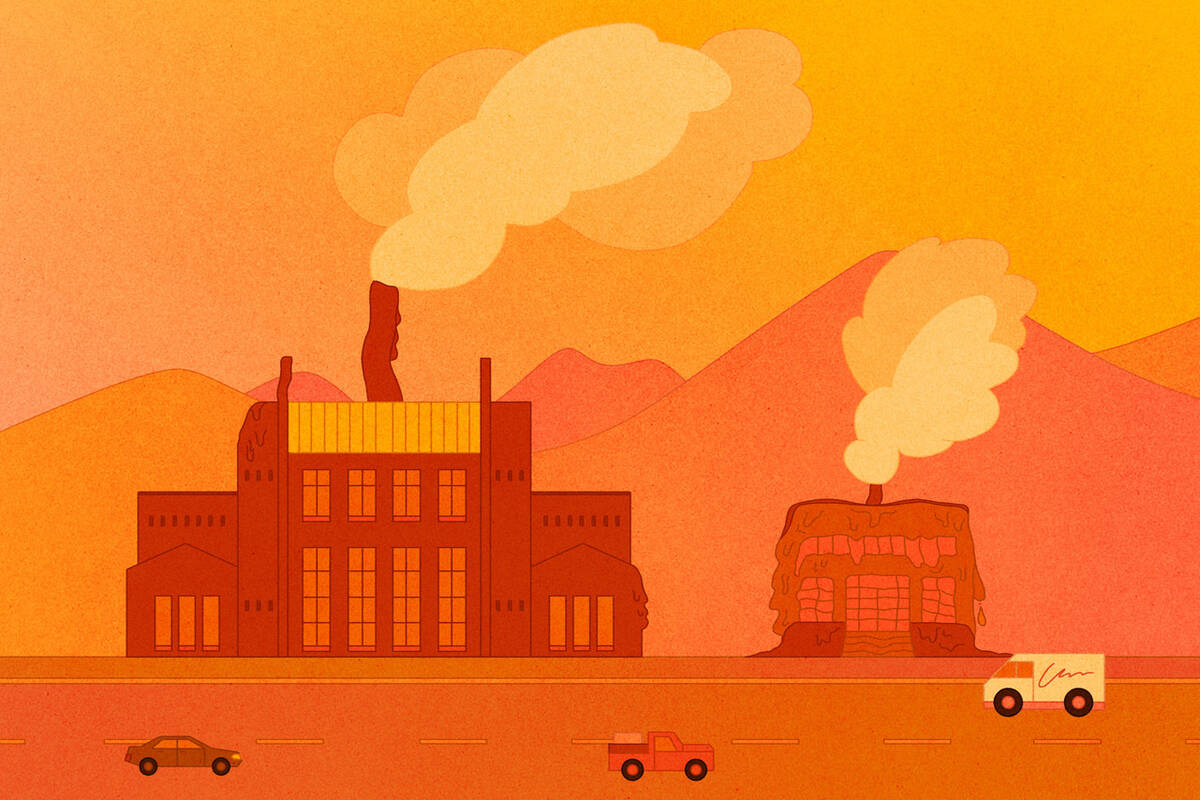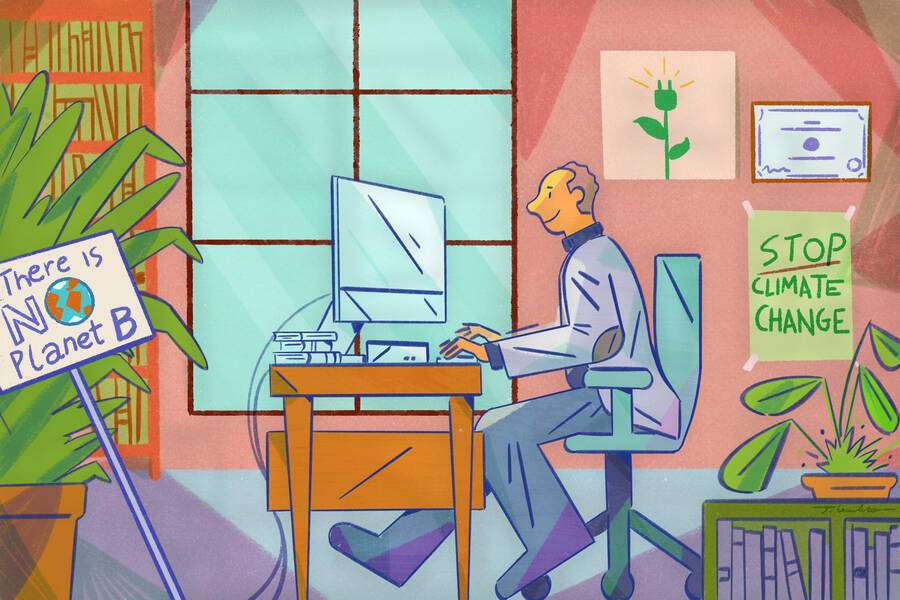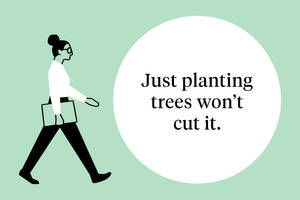In this roundup, we dive into recent Kellogg research into sustainability and green business practices. We also discuss the mindset that savvy leaders will need to navigate a transforming planet (and economy).
1. Climate is not an “over there, later” problem; U.S. manufacturers are already feeling the impact.
Drawing on U.S. Census data, Kellogg’s Jacopo Ponticelli and coauthors Qiping Xu and Stefan Zeume, both of the University of Illinois Urbana Champaign, studied manufacturing plants over four decades. They found that climate change is, in fact, already affecting the U.S. manufacturing industry—and that small firms in particular are bearing the costs of a warming climate. Over time, this disproportionate burden has driven concentration in the manufacturing industry, as workers from struggling smaller firms have been absorbed by larger ones.
“It’s important to know that even in developed economies like the U.S., the effects of climate change are present and significant,” Ponticelli says. “We need to understand that our economy is not immune to these effects.”
Kellogg’s Aaron Yoon has long studied the link between a firm’s environmental, social, and governmental (ESG) performance and its financial performance. More recently, he looked for financial repercussions further down the supply chain. Specifically, he investigated whether the social responsibility of a company’s suppliers is related to that company’s own financial well-being.
Yoon teamed up with Xuanpu Lin and Guoman She of the University of Hong Kong and Haoran Zhu of Southern University of Science and Technology to analyze news reports about negative ESG incidents—like labor violations or revelations of environmental harm—within publicly traded companies’ supply chains. They found a significant link between the level of ESG risk within a company’s supply chain and its future stock returns: negative ESG news dampened stock prices the following year.
Investors (and the companies that want to wow them) should take note. “Our findings highlight the importance of making supply-chain-related information available to investors,” Yoon says. As a long-term value-creating factor, the information has not been accounted for, he adds, and could increase portfolio returns.
Companies don’t exactly welcome activism. Who wants to be boycotted or picketed? But those same activists can also be allies who help companies achieve their strategic goals.
That’s the finding from research by Kellogg’s Brayden King who, along with Ion Bogdan Vasi of the University of Iowa, found that besieged energy companies and the activists that target them can form unlikely partnerships that are key to growing the market for green-energy technologies.
Energy companies that activists branded as the dirtiest polluters were the most likely to respond to this stigmatization by adopting green-energy technologies, the researchers found. The companies then received the benefit of free promotion of their green programs by local environmental NGOs.
“When companies choose to collaborate with activists, it creates a viable path for marketing opportunities that you wouldn’t have had otherwise,” King says.
New policies will be needed to address some of the larger structural barriers to sustainability. But getting the public to buy in to these policies? That can be a slog.
So a trio of Kellogg researchers that included professor Adam Waytz and his doctoral students Matejas Mackin and Trevor Spelman decided to see whether offering people some policy success stories from around the world could help.
“We hypothesized that if we could get people to think outside of their current here and now, they would be more amenable to different policies to promote sustainability,” Waytz says.
Across four studies, the researchers found that informing U.S. residents about the successful implementation of sustainability policies abroad, such as policies leading to new wind-energy infrastructure and reduced automobile use, did indeed increase support for similar legislation at home. It also increased people’s intentions to change their behavior to align with the policies.
“We see this intervention as a potential tool that could collectively motivate citizens to take action to change their own personal behaviors, and importantly, to support these policies that challenge the status quo,” Spelman says.
Forget “growth mindsets” and “creative mindsets.” What leaders will really need going forward is a “climate-capable mindset,” says Kellogg’s Meghan Busse.
What does this mindset entail? Leaders will need to not only clearly perceive our new reality but also mobilize a response that involves every function of their organization. Ultimately, she says, climate-capable leaders will stop undervaluing their climate investments and instead take a long-term, big-picture view.
Plenty of industries already think along these lines. Pharmaceutical companies regularly make decisions on a long-term horizon, fully aware that some investments will be abandoned and others expanded. Venture capitalists cast bets on startups, expecting many to fail but a few to pan out. Oil and gas companies dig exploratory wells in new fields. It’s past time to start thinking about climate investments in the same way.
“We’re going to have to build and buy and invent and install so much stuff as we make this transformation that there will be big opportunities for anybody who can provide parts of that solution,” Busse says.




